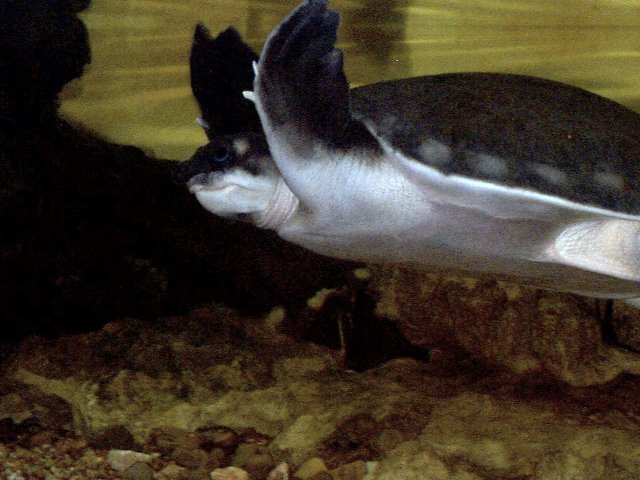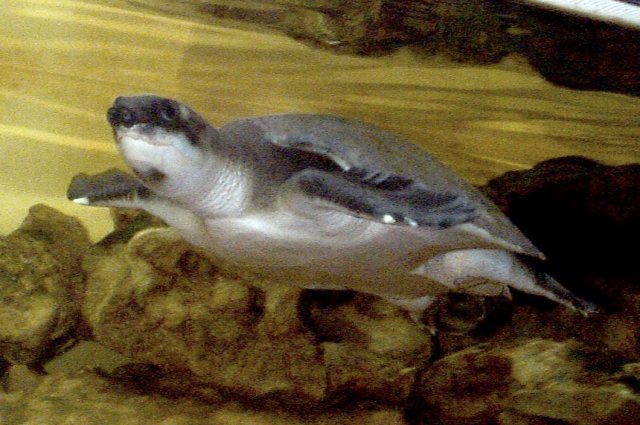
Fly river turtles are gray, with an olive color top and a yellow or white underside. They can reach nearly 50 pounds and be up to 22 inches long. The top of their tails have a single line of scales and because they are mostly aquatic they have paddle-shaped limbs with two claws on each. The shell is surfaced with skin, not with scales. They are sometimes referred to as the pig-nosed turtle because they have what looks to be a snout for a nose.
The Fly River Turtle is a very aggressive animal and needs ample hiding spots when living with others like themselves. It is unsafe to house them with any other type of turtle. They are extremely shy animals so they tend to be solitary.
Special Adaptations:
The Fly River Turtle has a pig-snout nose and two claws on each
flipper which distinguishes is from all other turtles. The Fly River
Turtle is the only fresh-water turtle with flippers with two claws.

The Fly River Turtle usually nests during the months of September through November. Many times females and males will be seperated (in captivity) from each other until breeding time because of their aggressive tendencies. After the reproduction process the female builds a shallow nest on the sandbank and deposits between 7-29 eggs and cares for them for the next three to four months until they start to hatch. Something rather interesting about the reproduction process is how the males and females are determined. The offspring is decided from the temperature of the nest. If the nest is hot then female turtles will result, and if the nest is cool, then males will be hatched. If the temperature varies then the sex will vary.
The animal is located in the herpetarium
but was currently off exhibit both times
I visited.
Rachel Loftin
adidas8414@yahoo.com
Sources and Links:
Grzimek, Bernard Dr. "Reptiles: Volume 6".
Animal Life Encyclopedia. 1975. ed.
Bargeron, Michael. "The Pig-Nosed Turtle".
Tortuga Gazette.
<http://www.tortoise.org/archives/pignose.html>
Gabbard, Jesse. The University of Michigan.
"Carettochelys Insculpta. Pignosed Turtle."
http://animaldiversity.ummz.umich.edu/accounts/
carettochelys/c._insculpta$media.html
"Fly River Turtle".
http://centralpets.com/pages/critterpages/reptiles/
turtles/TUR2622.shtml
"Turtles". The World Book Encyclopedia. 1994 Edition. Volume 19. pg. 520-521. World Book Inc. Chicago Ill, USA. 1994.
